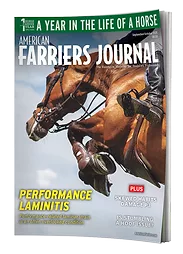“Hsssss.”
Wisps of smoke rise from the water and the fiery metal sizzles as it’s doused after being hammered into shape.
A variety of horseshoes and decorative art objects are being handcrafted by teams of blacksmiths practicing their craft before the Calgary Stampede competition begins this weekend.
Backlit by glowing embers in portable fire pots, a petite, blond woman stands out from the burly men in black. In a profession that’s long been dominated by men, Riley Swanby is forging a career and a name for herself.
“To me, I never look at myself as different,” she says. “There’s some good, some bad with being a woman. There are some people who hire me because I am a girl and others who won’t hire me because of that.”
At the age of 23, Swanby already has some pretty impressive credentials. She’s been working alongside her father Erik, who’s also a farrier, since she was a young girl growing up near Crossfield. He’s been a member of the Stampede blacksmith committee for years and now, so is his daughter.
“I’ve been hanging out here since I was a little girl. I got on the committee at 18 and I fell in love with it.”
Eschewing a more traditional career, Swanby began researching horseshoeing schools and settled on one in Kentucky where she was the only woman in her class in the first semester.
“I had to get some tough skin at school. I never thought of myself as a feminist, but that kind of changed at school,” she says. “I had to be quick-witted, but also prove myself with my skills.”
Beyond the novelty of it, being a female blacksmith does have some advantages, says Swanby. She feels she’s more detail-oriented and sometimes has a softer approach to the horses, but acknowledges she’s at a disadvantage if the horse isn’t interested in being shod. She isn’t a fan of working on draft horses or other large breeds, which can weigh as much as much as 900 kilograms.
“There are some things I struggle with. I don’t have brute strength, so I’ve had to learn to play more of a mind-game if they’re not co-operating.”
Swanby describes her first semester at school was “brutal.” She had to learn the technical skills of forging metal, the biomechanics and anatomy of equine science, while her body also had some adapting to do.
“It was brutal. Mentally I had so much to learn and your body is also learning. It’s so physically demanding. It’s important to look after yourself because I don’t want to burn out at 30.”






